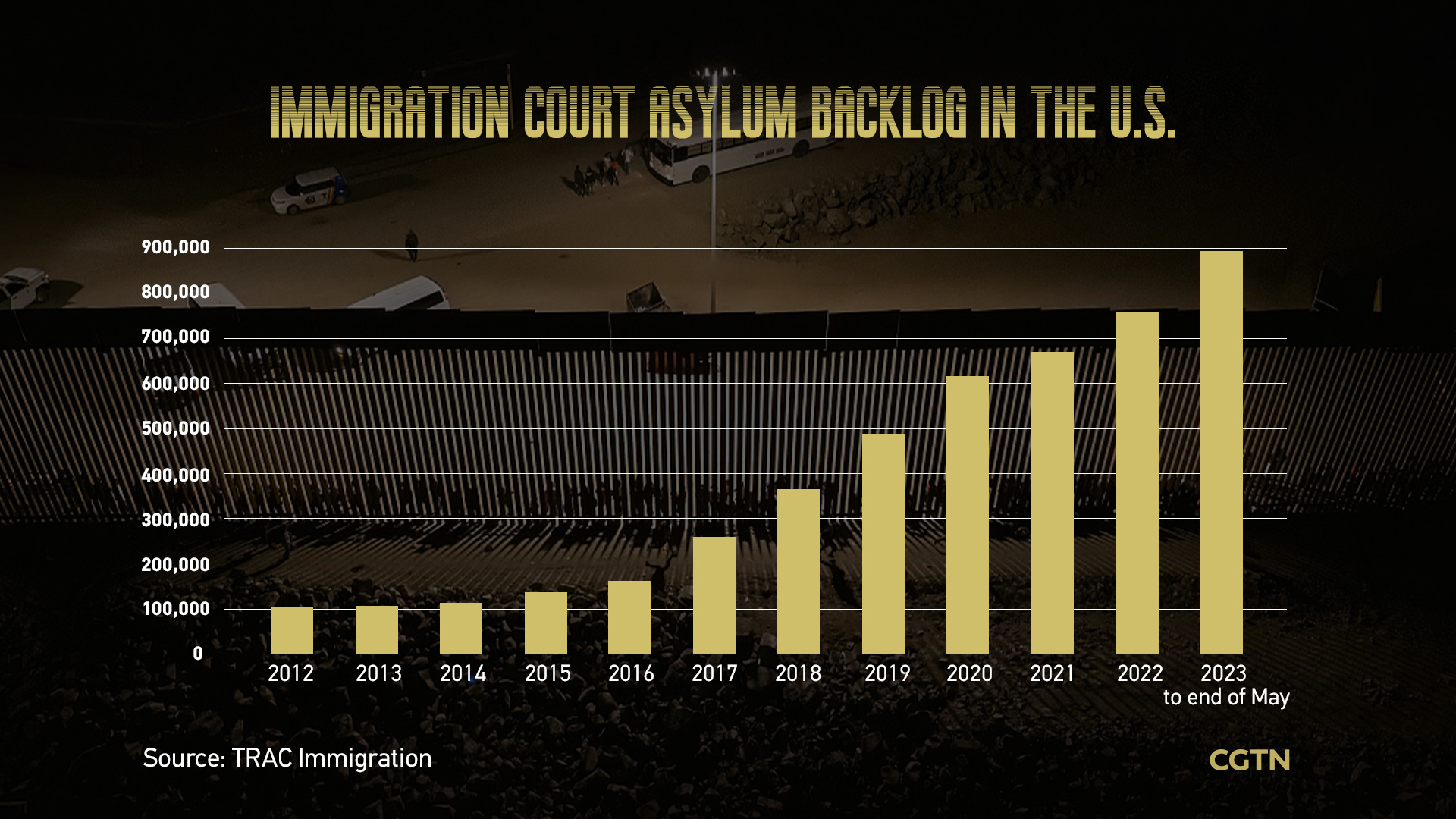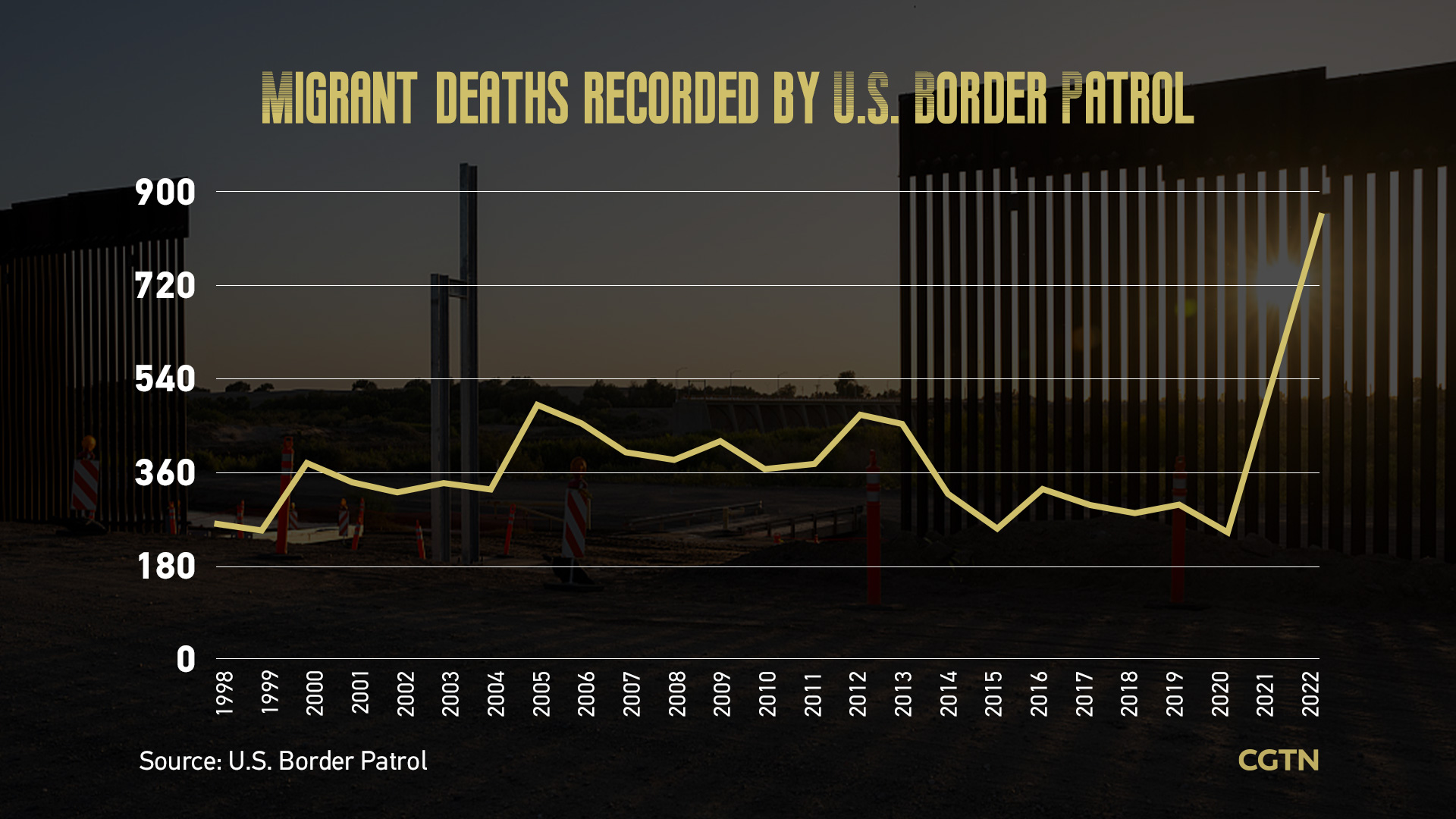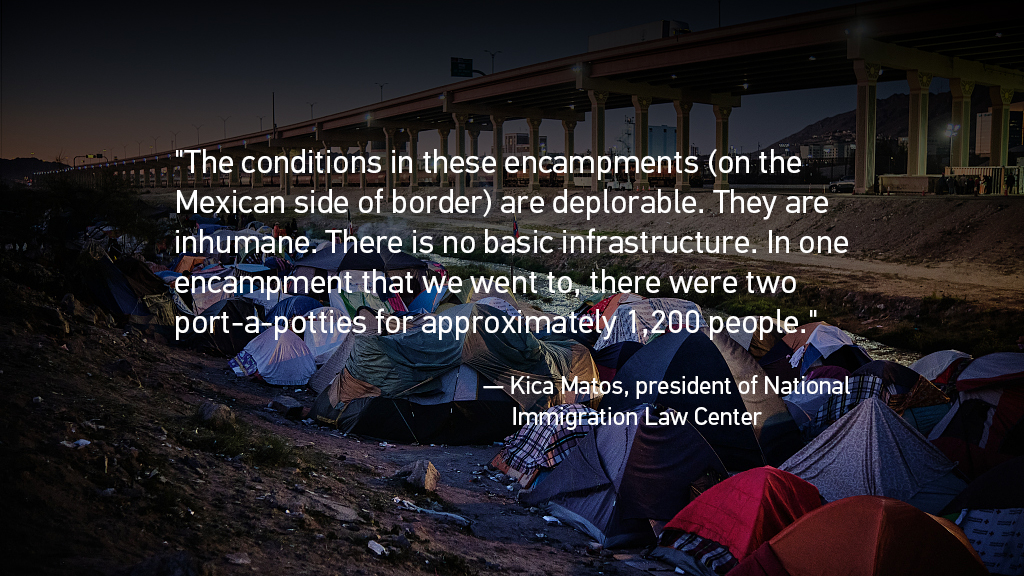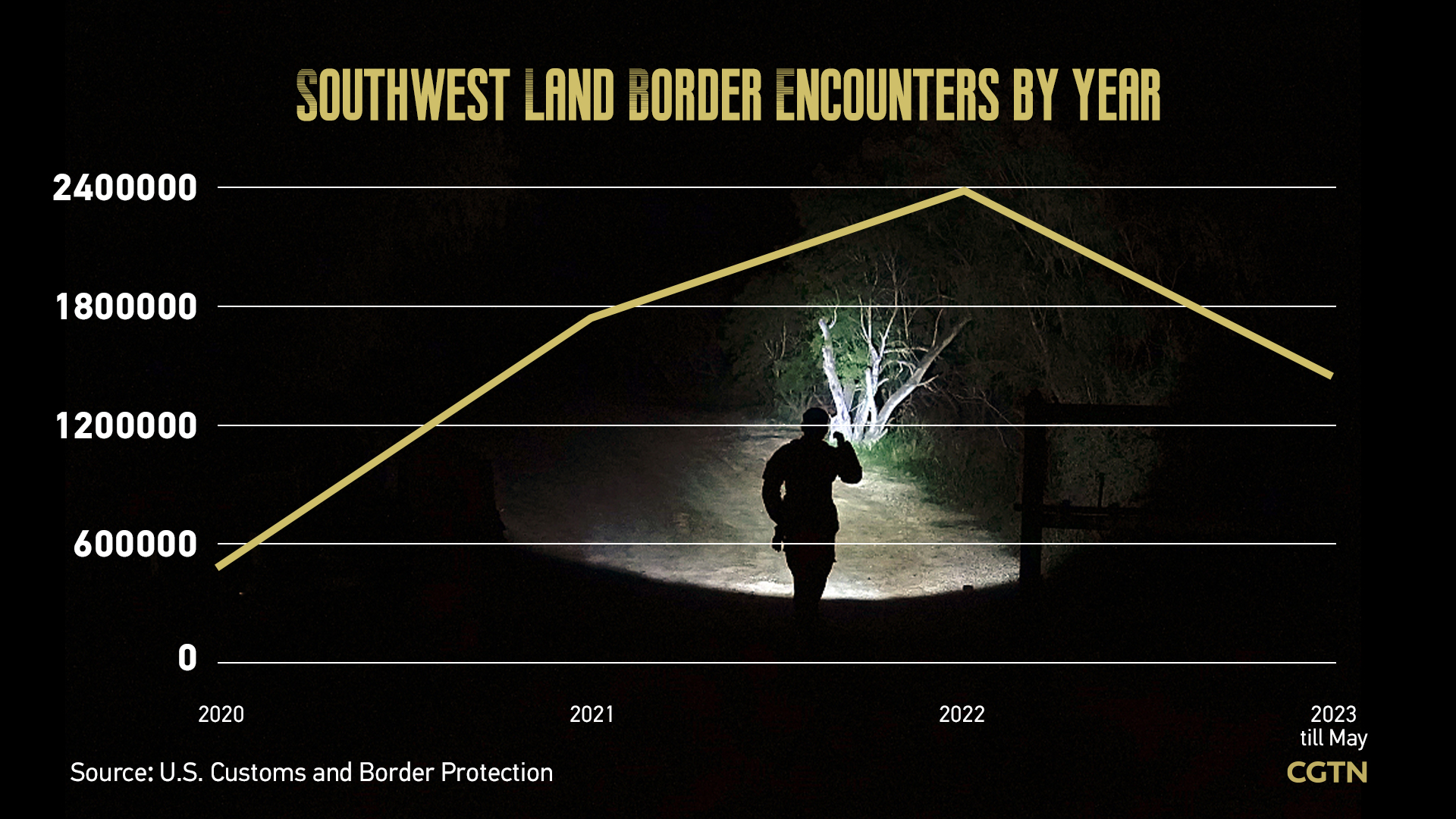Editor's note: In observance of World Refugee Day, we present a three-part news story series that sheds light on the experiences and challenges faced by refugees around the globe. Each installment focuses on a distinct region grappling with its own unique refugee crisis. This part of the series delves into the poignant situation along the U.S.-Mexico border, where migrants from various Central American countries seek asylum in the United States. We explore the harrowing journey, the harsh conditions, and the policies that shape the lives of those in search of safety and a better future.
Having embarked on the arduous journey of seeking refuge and hope, migrants from countries peripheral to the world's number one economy often find themselves on a perilous odyssey toward what they presume is a safe haven.
More often than not, they encounter an unforgiving reality once reaching the border: a labyrinthine system that seems intent on crushing aspirations. Locked in overcrowded detention centers, with some separated from family members, these asylum-seekers feel the tendrils of despair tightening around their hearts. Days turn into weeks, and weeks into months, as they languish in uncertainty, caught in a limbo between dreams and disillusionment.

This story, having repeated time after time, epitomizes the countless struggles faced by migrants at the U.S.-Mexico border. In many cases, their desperate journey ends in failure. In the three years before last month's expiration of Title 42, an emergency health authority allowing U.S. officials to turn away migrants along the border, more than 2.8 million expulsions were carried out by the authorities.
In the worst cases, they die from malnutrition and a lack of basic necessities in detention camps or during their journey. In May, a 17-year-old and an 8-year-old succumbed to illness while in U.S. custody. Last year, at least 853 migrants died attempting to cross the southern U.S. border illegally, making 2022 the deadliest year ever recorded by the authorities.

A cycle of destruction
The border crisis in the U.S. has long been a source of political contention, with differing approaches from successive administrations leading to a lack of consistency and clarity in immigration policies.
The Trump administration adopted a strict stance, employing measures like family separations and the implementation of Title 42 to expel migrants on public health grounds. The Biden administration, in contrast, promised a more compassionate and inclusive approach, but faced criticism for perceived leniency, which some argue contributed to the rise in border arrivals. Nonetheless, a new policy subsequently introduced by the Democratic president, which includes expedited screenings and deportations, continues to raise human rights concerns.
What's more, the historical and contemporary influence of the United States in its backyard is considered a major driving force for the longtime exodus of Latin Americans.
According to "The Harvest of Empire," a history book by award-winning journalist Juan Gonzalez, U.S. actions such as military interventions, political interferences, and economic exploitation of resources in Latin American countries have created a cycle of forced migration, where Washington plays a significant role in creating the conditions that drive people to leave their countries and seek refuge in the United States.
The most recent cooperation between the U.S. and Mexico regarding border enforcement, a move that has given rise to poor conditions and migrant abuses at Mexican detention centers, has led Camilo Perez-Bustillo, director of research, advocacy and leadership development at the Hope Border Institute, to argue in independent news website Truthout that the situation has created a kind of "secondary enforcer system."

"This sadly illustrates the combined effects of U.S. coercion and the current Mexican government's submission to its assigned role as secondary enforcer of the most regressive U.S. immigration and border policies through their neocolonial 'externalization'...," he wrote.
Harsher border control
The end of Title 42 has ushered in a new border enforcement regime spearheaded by President Joe Biden. While speculations had been rife that the southwest U.S. border would see a sharp surge in illegal crossings as soon as Title 42 expired, the reality was the opposite. The number of migrants unlawfully crossing the border has reached its lowest point since the start of the Biden administration, with migrants being stopped by Border Patrol plummeting from more than 10,000 to just a few thousands each day.

According to some estimates, there may also be a reduced presence of migrants waiting near the border to cross into the United States. These declines, however, have been attributed by U.S. officials to the new measures that are even harsher than what the Trump administration had imposed.
Before Title 42 ended, migrants could make as many attempts as they want to cross the border without facing repercussions if expelled. But the reimposition of a regulation known as Title 8, which replaced Title 42, now subjects migrants to felony charges if they are deported and subsequently caught attempting to illegally re-enter the U.S. within five years.
The implementation of a new policy known as "asylum ineligibility," is seen as another reason for the reduced number. Under the policy, migrants who fail to seek asylum in transit countries are considered ineligible to apply for asylum at the U.S. border, albeit with some exceptions.
These measures have caused outrage among human rights groups, who describe them as violating international law and effectually transferring the burden of humanitarian relief and enforcement from the U.S. to Latin America. Among the rules immigrant advocates are trying to block in Federal court is "asylum ineligibility," which they say is illegal and will essentially ban asylum.
Biden's new program "will inevitably result in the wrongful deportation of refugees to countries where they face persecution and torture," according to the Center for Gender and Refugee Studies.